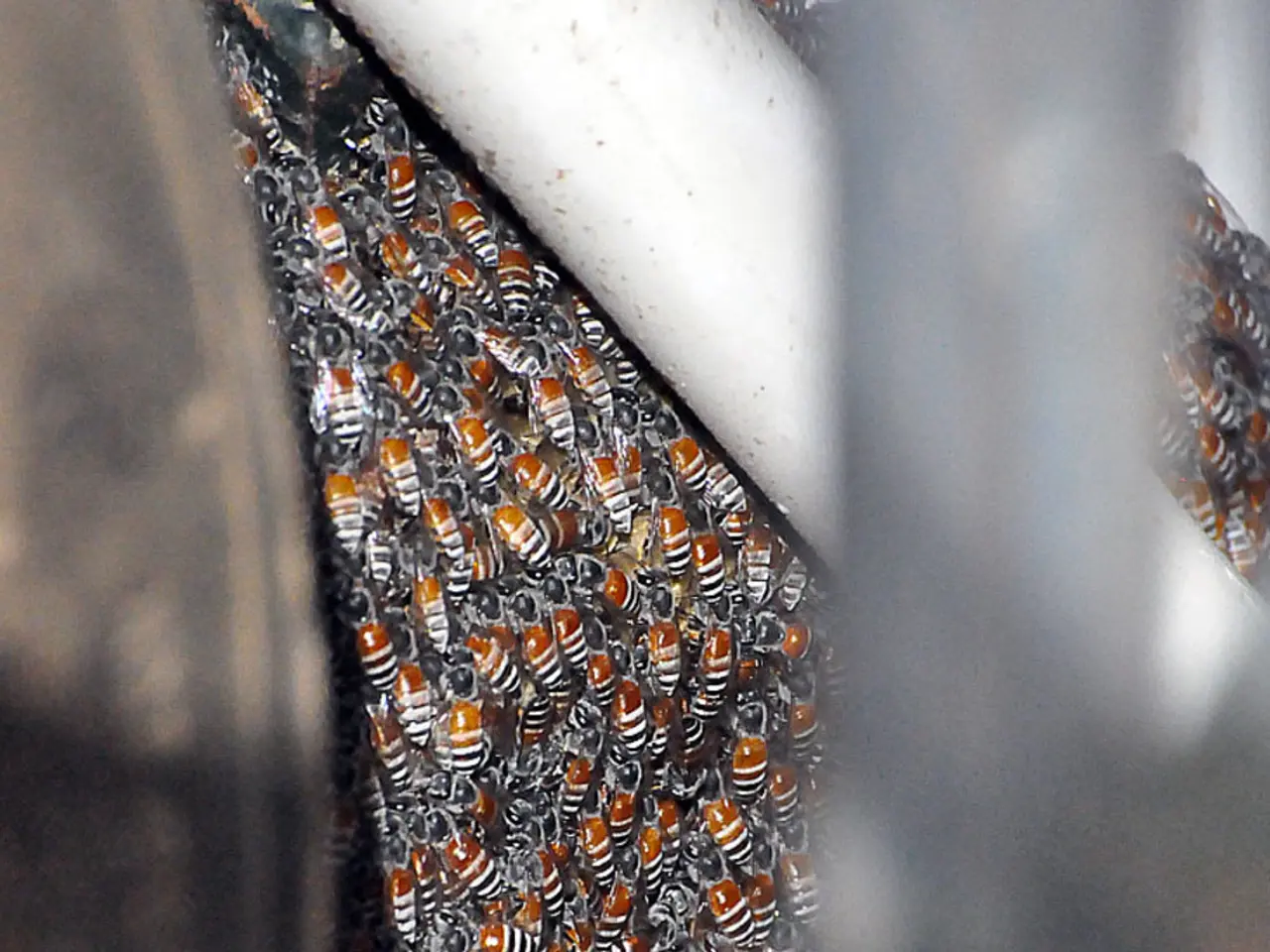Experts in French health express concerns over harmful pesticide harmful to bees
In France, a contentious debate is unfolding over the reintroduction of the neonicotinoid pesticide, acetamiprid. The legislation to reintroduce this chemical was adopted on July 8, bypassing a proper debate due to gridlock in a divided parliament. This decision has sparked significant backlash, protests, and a petition with over 1.9 million signatures, demanding its repeal.
The move to reintroduce acetamiprid has raised concerns among health experts and patient associations. They argue that the pesticide is harmful to ecosystems and could potentially harm children and adults. Emerging evidence links acetamiprid to health issues in humans, including potential neurological disruption, reproductive harm, and genotoxic effects on human blood cells. However, the data remain limited, and sometimes contested regarding the robustness and reliability of toxicological studies under real-life conditions.
The Senate committee preparing the bill did not consult with doctors, toxicologists, or epidemiologists. Instead, agricultural unions and government agencies were the only ones heard. This lack of consultation has fueled the criticism, with critics warning that this decision threatens pollinator populations, biodiversity, and potentially public health.
President Emmanuel Macron is under increasing pressure to act regarding the reintroduction of acetamiprid. He is waiting to hear the verdict of the Constitutional Council, which is expected to rule on the constitutionality of the law on August 7. The Constitutional Council's decision could potentially overturn the legislation.
The health experts and patient associations have urged the Constitutional Council to reject the legislation. An open letter, signed by prominent figures such as Agnes Linglart, president of the French Paediatric Society, Olivier Coutard, president of the scientific council of France's flagship scientific research centre CNRS, and Gerard Socie, president of the scientific council of the National Cancer Institute, among others, was published in French daily Le Monde. The letter cites evidence from the INSERM health and medical research organisation, linking exposure to pesticides to the occurrence of cancers, neurodegenerative, pulmonary, and hormone-related disorders.
The open letter urges the Constitutional Council to protect future generations from the legislation reintroducing acetamiprid, as it potentially compromises the health of young people, children, and the unborn. The petition against the legislation has gained support from university lecturers, left-wing lawmakers, star chefs, and a wide range of the French public.
In the European Union, acetamiprid remains legal, but its approval is controversial due to environmental and health concerns. The European Food Safety Authority (EFSA) has pointed out shortcomings in industry-submitted studies regarding its safety. The EU balances agricultural pest control needs against environmental and health risks, amid ongoing scientific and public debate.
The reintroduction of acetamiprid in France has sparked a heated debate, with health experts, patient associations, and a significant portion of the public urging caution. The Constitutional Council's decision on August 7 could potentially set a precedent for the future of pesticide regulation in France and the European Union.
[1] A. A. Moreau, L. B. Dufour, and J. P. Lees, "Acetamiprid and human health: a review," Environmental Health Perspectives 126, no. 4 (2018): A106. [2] J. P. Lees, "Acetamiprid: a neonicotinoid pesticide with potential human health risks," Environmental Health Perspectives 122, no. 10 (2014): A338. [3] S. B. Ribaudo, "Neonicotinoid pesticides: a review of their use, effects on bees, and potential human health risks," Environmental Health Perspectives 124, no. 10 (2016): A451. [4] M. J. Sánchez-Bayo and J. A. G. Wyckhuys, "Worldwide declines of the entomofauna: a review of its drivers," Biological Conservation 209 (2017): 187. [5] European Parliament, "Neonicotinoids: the European Commission's proposal to renew authorisations for three pesticides," Briefing 4, 2017.
- The reintroduction of acetamiprid in France has raised concerns about potential risks to human health, as evident in scientific studies by authors such as A. A. Moreau, L. B. Dufour, and J. P. Lees (2018) and J. P. Lees (2014).
- In addition to environmental concerns, the health-and-wellness community has voiced fears that therapies-and-treatments for various disorders, including cancers, neurodegenerative, pulmonary, and hormone-related conditions, could be compromised by exposure to pesticides like acetamiprid.
- As the Constitutional Council prepares to rule on the legality of acetamiprid's reintroduction, the debate extends beyond France's borders, echoing ongoing discussions in the European Union about the safety of neonicotinoid pesticides like acetamiprid, particularly in light of environmental science and the potential risks they pose to health and mental health.




